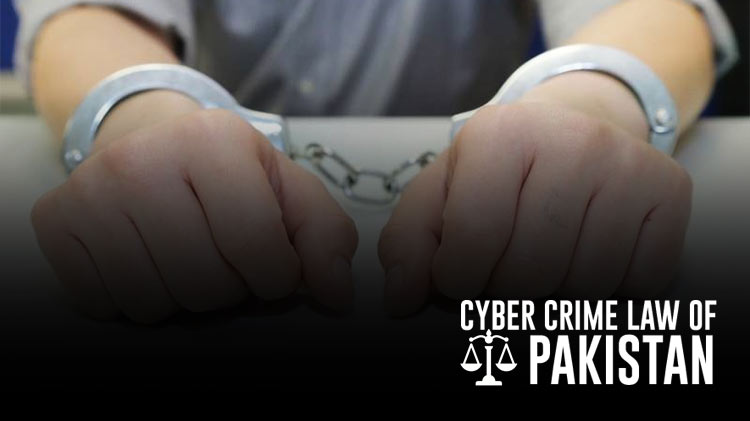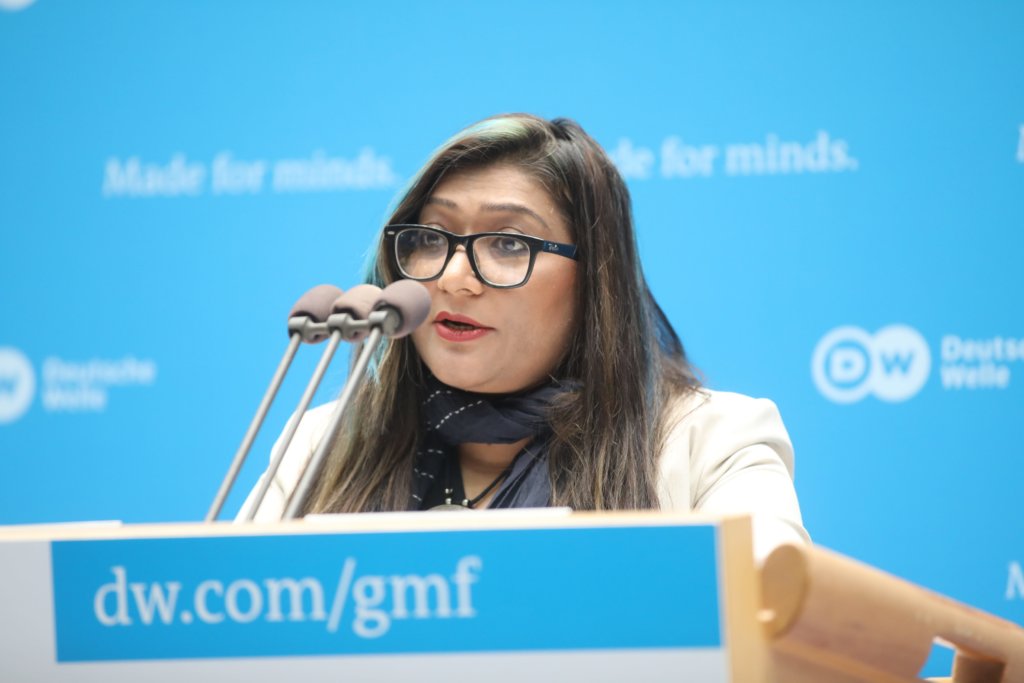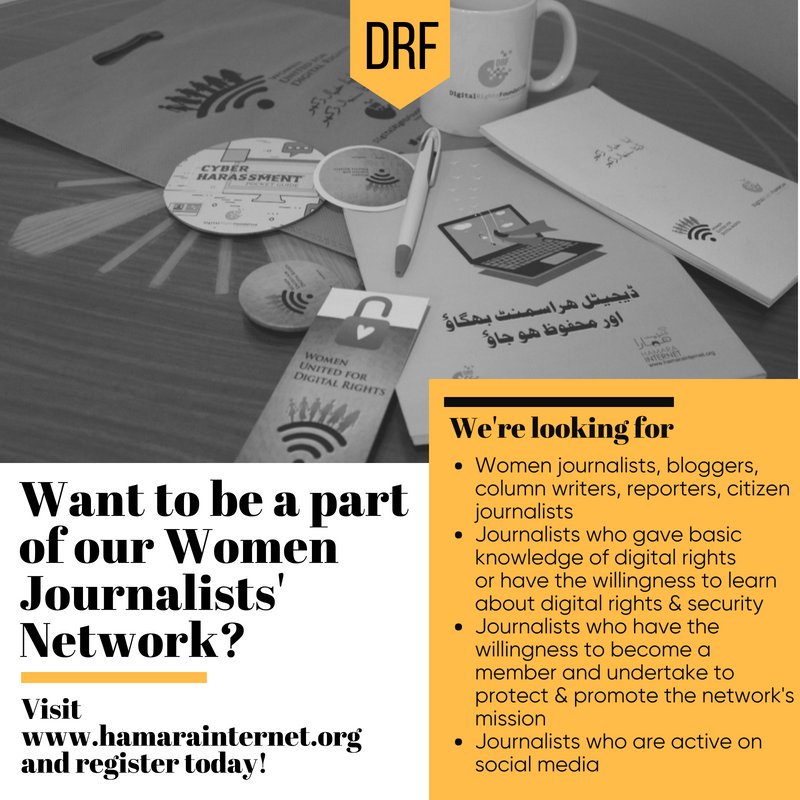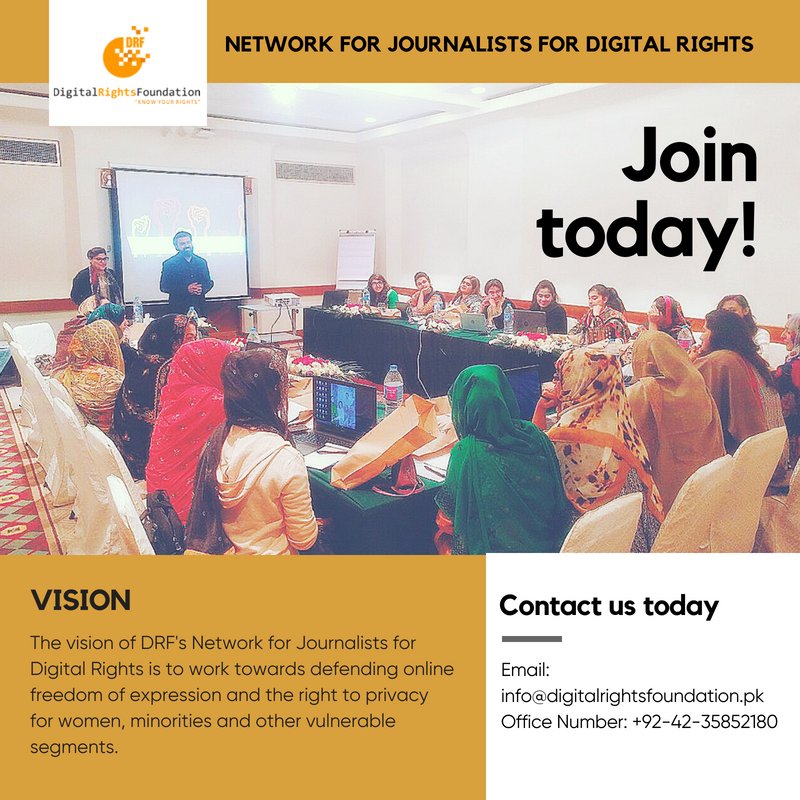July 12, 2018 - Comments Off on June 2018: The Government of Pakistan introduces bill for data protection legislation
June 2018: The Government of Pakistan introduces bill for data protection legislation
DRF Statement: Ministry of IT and Telecom introduces the Personal Data Protection Bill
We commend the efforts of the MoITT to put the preliminary bill of the Personal Data Protection Act for comments. The initial overview of the draft by the DRF team suggests that while the bill is comprehensive in its scope and underscores the importance of data protection and consent of the user before using and/or transmitting their data, we notice that it indeed has some loopholes that have the potential of taking away people’s agency from their information.
DRF submitted a policy brief to the ministry, PDF of which can be found here, and some of our recommendations were made part of this draft. However, we believe that certain sections in the bill should be amended, and DRF is in the process of analysing it in detail to file a submission to the ministry. We hope that the Ministry of Information Technology and Telecommunications will take our recommendations into account in order to address these issues.
Read the full statement here.
Digital misogyny is personal and fixable
Article posted on the website of United Nations Human Rights Office of the High Commissioner
For women and girls, the internet can be empowering but it can also be a dangerous space. Threats, intimidation and extortion attempts are just some of the ways that abuse online takes place. The abuse comes because of what the victim has said, or the group they belong to, the cause they are advocating or in many cases, simply because they are female.
The nature of attacks on women human rights defenders and activists is different, said Nighat Dad, Executive director of the Digital Rights Foundation in Pakistan. During instances of online gender based violence, she had routinely noticed that the attacks against women activists have been personal. Women are criticised for the clothes they wear, how they smoke a cigarette, there are calls for them to be assaulted or raped, Nighat Dad said.
“While not abuse against anyone is less terrible than the other, but when the men are abused, they are abused based on their work. But when a woman is involved, the attacks become personal. Body shaming, character assassination, rape threats, you name it.”
The results of online harassment is stark: women have reported the subsequent psychological harm, including cases of depression, and threats to their safety. These online threats often materialize offline, i.e. online violence can result in offline violence, such as the case in India for Ms Gauri Lankesh a journalist who published criticism of Hindu extremism was killed last year following widespread calls online for violence against her.
Read the article here.
Man convicted under cybercrime law for child pornography
Following in the stead of his predecessor, Judicial Magistrate Aamir Raza Baitu has issued a judgement under section 22 of the Prevention of Electronic Crimes Act (PECA) 2016 [PDF]. This development comes on the heels of another important judgement on online harassment and blackmailing which was reported here and which spoke to the potentially positive impact that the otherwise draconian Act can have if employed within reason.
The defendant in this case was accused by the Cyber Crime Circle of the Federal Investigation Authority (FIA), of possessing, transmitting and producing pornographic pictures and sexually explicit videos by casting children between the ages 10 and 12 in them and then transmitting those pictures and videos to his agent, A , in Norway. The complainants in this case were not the affected children, but the FIA itself, as child pornography is one of the few offences where the FIA can take cognizance. Read details here.
Digital Rights: A Global Action Plan | Global Media Forum
Nighat Dad was at the Global Media Forum happened from June 11-13, 2018 in Bonn, Germany. Nighat's talk titled "Digital Rights: A Global Action Plan" addressed the issues pertaining to digital rights and explored the possible actions required to be taken collectively for a safe and inclusive internet. Nighat said, "While as journalists, human rights defenders and advocates of open access, we can’t bring a revolution in a matter of days, but what we can do is provide support to people and advocate for stronger legislations." Watch Nighat's talk here.
Network of Women Journalists for Digital Rights
Digital Rights Foundation launched its Network of Women Journalists for Digital Rights in 2017 to equip women journalists to counter online violence targeted at them and overcome past experiences that may lead to self-censorship or in extreme conditions, pull themselves away from digital spaces altogether. Online violence is a barrier to women and girls’ access to ICTs and the internet, and their broader human rights, stifling freedoms of expression, association and assembly. To counter this, DRF has created a space for the Network members to regularly share articles and columns on digital rights issues which can be found on the Hamara Internet website here, and to record their voices, particularly relating to digital rights and security issues.
Freedom Network introduces Safety Advisory For Pakistani Journalists Covering #Elections2018
"Freedom Network, Islamabad-based Pakistani media watchdog organisation, releases Safety Advisory to sensitise journalists, photographers, cameramen, media assistants and their organisations on need to take measures to make staffers safe while reporting #Elections2018.
The tips – both in English and Urdu languages – may help minimise risks they may face while reporting these important elections." Details here.
Study reveals extent of Awami Workers political party website block in Pakistan
PAKISTAN – The NetBlocks internet shutdown observatory project in coordination with the Digital Rights Foundation has collected evidence of blocking of a political party website, operated by the Awami Workers Party, in the run up to general elections scheduled on the 25th of July 2018.
The extensive study conducted on Sunday 3 June 2018, spanning 73 autonomous networks and comprising some 10,000 measurements using network digital forensic techniques reveals that the political party’s website has been blocked by most, but not all, Pakistani internet service providers throughout the country. Read the statement by DRF here.
LHC issues notices to PTA chairman, ECP over Facebook’s influence on general election
The petitioner, Shahid Jamal, requested the court to direct the interim federal government, ECP and PTA to press Zuckerberg to take action against fake accounts created on the social media giant before the general election scheduled for July 25. Details here.
Supreme Court of Pakistan suspends tax deduction on mobile cards
LAHORE: The Supreme Court of Pakistan has suspended tax collection on mobile cards and mobile internet in Pakistan.
Chief justice of Pakistan (CJP) Mian Saqib Nisar had taken notice of the high levy charged on mobile phone cards in the country as he asked under which law Rs40 were being deducted from Rs100 mobile cards. Details here.
Published by: Digital Rights Foundation in Blog










Comments are closed.